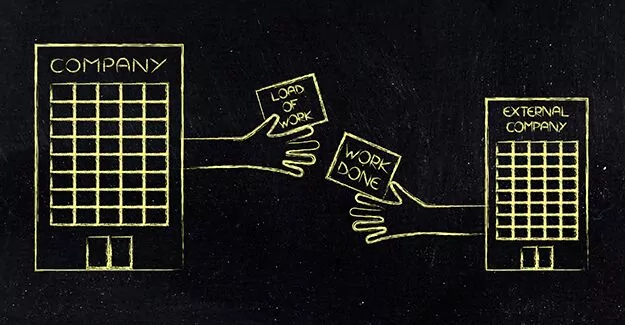Enhancing Analytical Productivity by Breaking Down Silos (Part 2)

Transferring data and methods from central to distributed labs
Companies that develop and manufacture biopharmaceutical drugs are in a race for greater productivity. Tools and technologies that improve analytical performance and deliver workflow efficiencies that accelerate development and/or lower production costs are in high demand.
With a focus on speeding development and manufacturing timelines for multiple drug candidates simultaneously, biopharma companies have increasingly turned to outsourcing partners that can do the work necessary to advance or discontinue these molecules. While the costs of outsourcing are higher in the short term, clearly many biopharma companies have calculated that these higher costs are outweighed by the benefits of not having to build the capacity and/or expertise to do everything themselves, and by the time savings that result.

Indeed, over the past decade, the pharma/biopharma industry has seen a marked increase in outsourcing to contract research, development, and manufacturing service providers (CROs, CMOs, CDMOs… collectively referred to as CXOs). According to a recent market research report by MarketsandMarkets, outsourcing from pharmaceutical and biopharmaceutical companies will grow 7.5% annually over the next 5 years, reaching $43.5 billion by 2023 with the highest growth (13.3% CAGR) happening in the Asia Pacific region.1
Outsourcing can indeed increase the pace of development across a broad portfolio of drug candidates, but it is not without risks as well. For example, effectively transferring data and methods to external partners (distributed labs) such that they can continue the work you started can take a long time and consume valuable resources, undercutting the advantages of working with an external partner to begin with. Also, there is the matter of having systems and procedures in place that ensure the data being generated is delivered in a manner that preserves data integrity and compliance – thus minimizing the risk of regulatory hang-ups that can lead to significant delays and added costs to resolve.
From the initial data submissions needed to begin clinical trials to the final data package submitted for regulatory drug approval, the onus is on biopharmaceutical companies to demonstrate that data being submitted was generated using instruments, software, and methods that were properly validated, and that the data itself was not cherry picked or altered in any way.
When working with external partners, it is important to think about how data and methods will be transferred and how the data generated will be managed so that it meets data integrity and compliance requirements.
At Waters we understand compliance and the hidden complexities that can undermine data integrity, especially when transferring data and methods across labs and geographies, including external partners.
For more than two decades, our Empower Chromatography Data Software has been the standard for compliance-ready LC data acquisition and reporting within the pharmaceutical/biopharmaceutical industry. Our more recent UNIFI Software platform, launched in 2011, has extended our compliance-ready informatics framework to cover an even broader range of LC-optical and LC-MS workflows, thus lowering data integrity risks and delivering greater benefit to our customers.
Our vision is to realize a compliance-ready informatics ecosystem in which all our tools, as well as third-party tools, can operate; one that enables the smooth flow of data and methods across labs and geographies in a way that preserves data integrity and creates workflow efficiencies that fuel substantial productivity gains.
In my next blog post (the final in this “Breaking down silos” series), I will discuss the importance of breaking down silos between data generated in the past, and that being generated today and in the future.
Read my previous post in this series:
References:
- Contract Research Services Market – Global Forecast to 2023, MarketsandMarkets, January 2018.
Previous blog posts on biopharma data harmonization:
- Biopharma Data: Chaos or Harmony?
- Biosimilars Intensify the Need for Harmonized Data
- From the Results of Yesterday to the Biologic Drugs of Tomorrow
Popular Topics
ACQUITY QDa (16) bioanalysis (11) biologics (14) biopharma (26) biopharmaceutical (36) biosimilars (11) biotherapeutics (16) case study (16) chromatography (14) data integrity (21) food analysis (12) HPLC (15) LC-MS (21) liquid chromatography (LC) (19) mass detection (15) mass spectrometry (MS) (54) method development (13) STEM (12)


